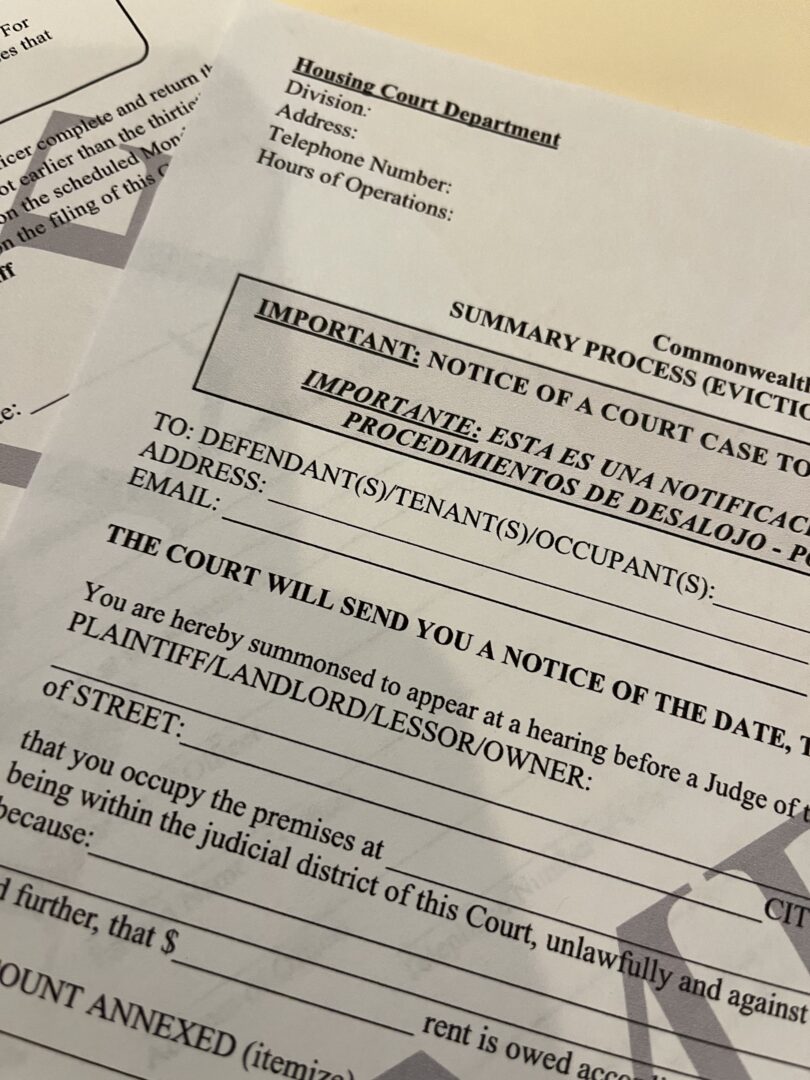By Jared Jacob
Boston University News Service
House leaders have re-introduced Covid-era housing protections more than a week after the legislation expired, potentially leaving many residents vulnerable to eviction.
Chapter 257, the now-expired legislation, focused on the summary process of evictions proceeding. Traditionally in a case of eviction, the landlord could win with a simple claim of nonpayment. With the Chapter 257 protections, however, a new stopgap was enacted.
Now, landlords would have to wait for renters to receive rental assistance, such as the RAFT program, which currently gives up to $10,000 a year in rental assistance to the landlord on behalf of the renter.
Jessica Drew, a senior attorney for the Greater Boston Legal Services, spoke on the eviction processes as a whole and the intricacies of the all encompassing matter she believes it to be.
“Evictions are a public health problem,” Drew said. “I see them as more than just an individual and more of a societal issue that has cascading impacts that are detrimental not only for the families involved, but for the community at large.”
Michael J. Baldassarre, a Massachusetts lawyer who deals with landlord tenant cases, brings into focus the duality of the eviction process, and the need for state and federal assistance programs.
“I think as long as the assistance stays in place or goes away gradually, it will help keep people in their homes,” Baldassarre said. “Otherwise, with a burden on the landlord of paying a mortgage, the property tax, the insurance, the upkeep, the maintenance – it’s going to cause, I think, a huge financial disruption.”
He later added: “If the subsidy goes away, or it doesn’t end gradually, it would cause a major disruption for tenants as well as landlords.”
Massachusetts Congresswoman Ayana Pressley has been a staunch advocate to keep housing protections for tenants.
“The Commonwealth’s housing protections under Chapter 257 have served as a critical lifeline for Massachusetts residents at risk of eviction, and allowing this law to lapse would be devastating for families,” Presley said in a written statement.
Advocates like Drew from the GBLS reiterated that there is a distinction between filings for evictions and the actual process of displacing a person from their home, with evictions being the actual act of being served by the sheriff and forced to vacate.
“In the last few months since COVID has ended…. we’ve seen an uptick in eviction cases such that they are now at pre-pandemic levels,” said Drew.
According to the Massachusetts Trial Courts, from January 2022 to April 2022, the number of new eviction filings in Suffolk County were 431; in the same time this year, the total jumped to 1,175.
It is unsure whether or not eviction filings will tick up further than they already have, but people being displaced from their homes might soon be on the rise, especially those in vulnerable communities.
“It’s the usual suspects, it’s people of color, undocumented immigrants, particularly single women with children, LGBT folks, low-income folks,” Drew said. “So really all the vulnerable populations that we constantly talk about as being under threat of various policies and initiatives.”





